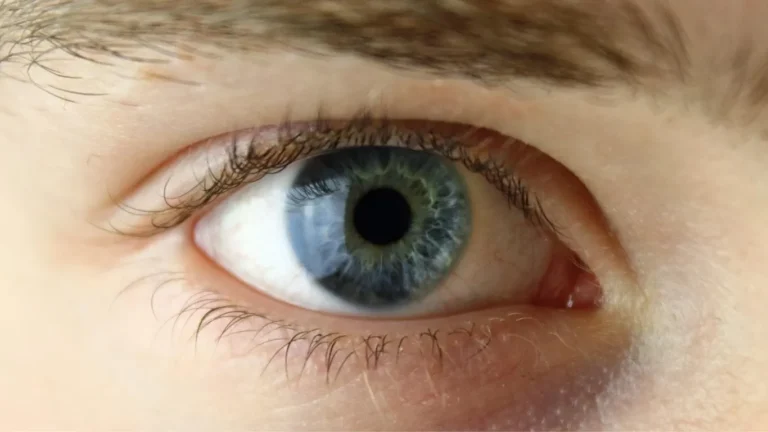The Best Treatments for Nocturnal Asthma: Proven Tips for Better Sleep and Breathing
Introduction: Finding the Best Treatments for Nocturnal Asthma
Let’s talk about something that many of us don’t discuss enough: nocturnal asthma. If you’re like most people who experience asthma, you probably already know how frustrating it can be when symptoms hit, especially at night. I’ve seen patients struggle with waking up every few hours gasping for air, feeling like they can’t get a solid night of sleep. Trust me, I get it. As someone who works with asthma patients, I’ve helped countless people find the best treatments for nocturnal asthma that truly make a difference.
But why does asthma seem to get worse at night? And what exactly can we do to help? In this guide, I’ll break down some effective treatments and strategies that I’ve recommended to many patients over the years, all based on real-life experience. If you’ve been tossing and turning, wondering how to finally get some decent sleep without that nagging cough, this is for you.
What is Nocturnal Asthma? A Quick Overview

Before diving into treatments, let’s get a clear picture of what we’re dealing with. So, what makes asthma nocturnal? Simply put, nocturnal asthma refers to when your asthma symptoms—like coughing, wheezing, and shortness of breath—flare up during the night. For some people, it happens at a specific time (usually in the middle of the night or early morning), making sleep a nightmare.
Now, here’s the tricky part: Nocturnal asthma isn’t just about your lungs misbehaving. Several factors come into play, including:
- Body’s Circadian Rhythms: Your body’s natural rhythms change throughout the day. In the evening, your airways naturally narrow, which can trigger symptoms.
- Allergens: Dust mites, pet dander, or even mold in your bedroom can be major triggers for nighttime asthma.
- Gravity: When you lie down, the mucus in your airways can shift, potentially making it harder to breathe.
I know it can feel like you’re being held hostage by your own body, but there are ways to manage these symptoms. Let’s dig into what really works.
The Best Treatments for Nocturnal Asthma

The right treatment depends on the severity of your asthma and how often it flares up at night. But here are some treatments that I’ve found to be effective for most people struggling with nocturnal asthma.
1. Inhaled Corticosteroids: The Go-To for Long-Term Control
One of the most common treatments I recommend is inhaled corticosteroids (ICS). These meds work by reducing inflammation in the airways, which helps keep the airways open and easier to breathe through. ICS are often used as long-term maintenance medications to prevent flare-ups—especially those that happen at night.
If you haven’t been prescribed one of these yet, it might be time to have a chat with your doctor about it. They’re usually taken daily and can be super effective in keeping symptoms under control.
2. Long-Acting Beta-Agonists (LABAs): Breathing Easier All Night
For those who find that ICS alone just isn’t cutting it, adding a long-acting beta-agonist (LABA) might be the way to go. These are inhalers that help relax the muscles around your airways, making it easier for air to get in and out. LABAs are usually combined with ICS, providing 24-hour coverage.
It’s like having a double-layered defense against asthma: one working on inflammation and the other on airway constriction. I’ve had patients swear by this combo for keeping them symptom-free during the night.
3. Leukotriene Modifiers: A Handy Addition to Your Treatment Plan
Leukotriene modifiers are oral medications that help block the chemicals in your body that contribute to inflammation. These meds don’t usually provide instant relief, but they can be super helpful in preventing nighttime symptoms, especially if you’re dealing with a lot of allergy-related asthma.
One patient of mine, who also has allergies to pollen, found that adding a leukotriene modifier helped them sleep through the night without waking up congested or wheezing.
4. Biologic Therapies: A Breakthrough for Severe Cases
If your asthma is severe and not responding to traditional treatments, biologics might be an option. These are injectable medications that target specific parts of the immune system that cause inflammation and airway constriction. I’ve seen some incredible success stories with biologics, particularly for patients whose nocturnal symptoms wouldn’t improve with typical inhalers or oral meds.
While biologics are a bit more specialized and expensive, they can truly change the game for people with chronic, severe asthma.
5. Lifestyle Adjustments: Small Tweaks for Big Impact
Sometimes, managing nocturnal asthma isn’t all about medications—it’s about adjusting your environment. Here are a few simple lifestyle changes that can make a big difference:
- Allergen-Free Zone: Keep your bedroom allergen-free by using HEPA filters, washing bedding regularly, and keeping pets out of the bedroom. Believe me, these small steps can help you sleep better.
- Cooler Temperatures: A cool room is ideal. If you live in a hot climate, try using an air conditioner or a fan to help keep the air clean and cool.
- Elevate Your Head: Try using extra pillows to prop your head up while you sleep. This can help prevent mucus from accumulating in your airways and reduce the likelihood of a nighttime flare-up.
Troubleshooting Common Issues with Nocturnal Asthma

Even with the best treatments, asthma can still throw curveballs. Here are a few common issues and ways to address them:
1. Inconsistent Medication Use
I know it can be easy to forget to use your inhaler at night, especially when you’re in the midst of a busy life. But skipping doses or not following your treatment plan can make your nocturnal symptoms much worse. One trick I recommend is setting a daily alarm to remind you to take your medication before bed.
2. Allergens That Won’t Go Away
Dust mites, pet dander, and mold are some of the most common triggers for nocturnal asthma. If you’re finding that your asthma symptoms persist despite treatment, it could be that you’re still exposed to allergens. Clean your bedroom frequently, and consider investing in an air purifier to keep the air as clean as possible.
3. Stress and Anxiety
This one’s a biggie. Stress can cause asthma symptoms to flare, especially at night. Try relaxation techniques like deep breathing or meditation before bed. A calm mind makes for calmer airways!
Real-Life Case Studies: How These Treatments Helped

Case Study 1: Sarah’s Experience with Combination Therapy
Sarah was a 40-year-old teacher who’d been battling nocturnal asthma for years. No matter what she did, she’d wake up at least twice a night, struggling to breathe. We started her on a combination of inhaled corticosteroids and long-acting beta-agonists. A few weeks later, Sarah told me she was finally sleeping through the night. Her symptoms were much less frequent, and she felt more energized in the morning.
Case Study 2: Jake’s Success with Biologics
Jake, a 29-year-old graphic designer, had severe asthma that wasn’t responding to traditional treatments. He was prescribed a biologic therapy, and within a month, he noticed a huge improvement in his nighttime symptoms. Not only was he sleeping better, but his asthma was more manageable overall.
Key Takeaways and Summary
If you’ve been struggling with nocturnal asthma, know that you’re not alone. With the right treatments and lifestyle changes, it’s absolutely possible to manage your symptoms and get a full night’s rest. From inhalers to lifestyle tweaks, there are so many ways to take control of your asthma and sleep better.
5 FAQs About Nocturnal Asthma
- What causes nocturnal asthma? Nocturnal asthma is caused by factors like body rhythms, allergens, and gravity. The airways narrow during the night, which can worsen symptoms.
- Can lifestyle changes help nocturnal asthma? Absolutely! Reducing allergens in your bedroom and elevating your head can help reduce nighttime flare-ups.
- What are the best medications for nocturnal asthma? Inhaled corticosteroids, long-acting beta-agonists, and biologics are some of the best options for managing nocturnal asthma.
- Is nocturnal asthma dangerous? If left untreated, nocturnal asthma can disrupt your sleep and overall health. But with the right treatment, it’s manageable.
- How can I prevent nocturnal asthma attacks? Stick to your medication regimen, create an allergen-free sleeping environment, and manage stress to prevent attacks.
Appendix
References:
Disclaimer: The information provided in this article is for informational purposes only and should not replace professional medical advice. Always consult a healthcare provider for personalized guidance.
Call to Action: Tired of waking up in the middle of the night gasping for air? Let’s work together to find the best treatments for nocturnal asthma that’ll help you sleep soundly again. Talk to your doctor today to explore your options.

Bianca Nala is a compassionate Nurse Practitioner with a strong background in primary and respiratory care. As a health writer for Healthusias.com, she combines her clinical expertise with a talent for clear, relatable storytelling to help readers better understand their health. Bianca focuses on topics like asthma, COPD, chronic cough, and overall lung health, aiming to simplify complex medical topics without losing accuracy. Whether she’s treating patients or writing articles, Bianca is driven by a single goal: making quality healthcare knowledge accessible to everyone.







